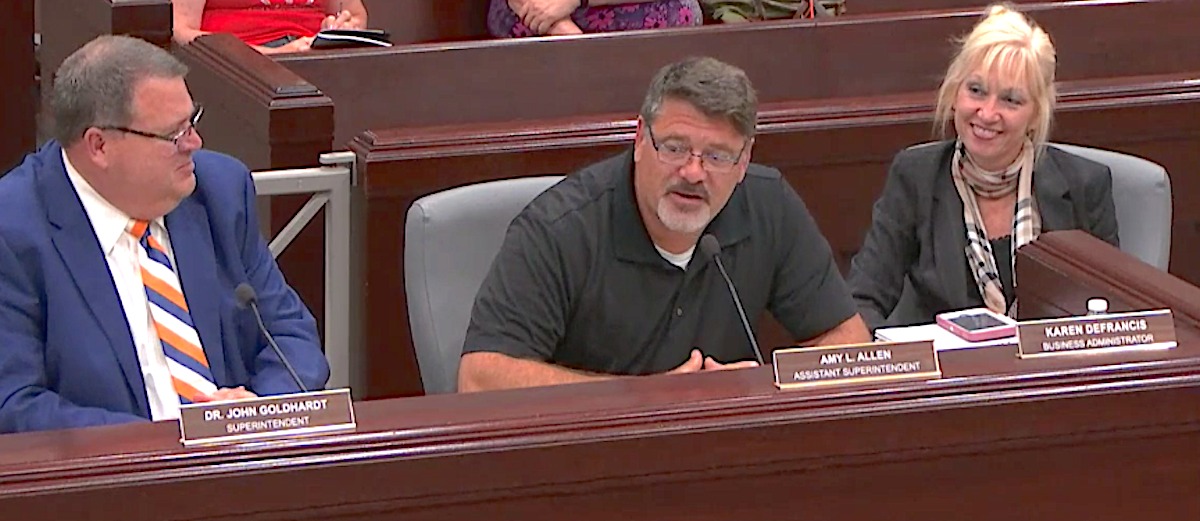
MANCHESTER, NH — Many students and teachers throughout the school district will get new computers as a result of major purchases the district has been able to make, according to district information technology director Stephen Cross. Cross provided a written report and testimony about the purchases to the Board of School Committee during the regular meeting on August 26.
The department received $2.3 million, including $1 million from a technology bond, to buy new computers and software, for which Cross thanked the BOSC. “The district really needed it,” he said. “It’s going to be a great year.”
Like many school districts in the country, Manchester uses the popular Google Chromebook notebook computer for students. Before receiving the new funding, Cross said, 83 percent of the Chromebooks were at the end of their expected service life, and most of the desktop computers were so old that they were no longer able to receive security updates.
A typical Chromebook for consumers costs more than $260, according to Cross’s report, but the starting price available to schools was $192 for each. To get that figure down further, Cross said he talked to other districts to figure out which vendors were most able to handle Manchester’s big orders. Cross then sent out a quote request by email to a group of vendors who could supply the Chromebooks at the volume needed. The vendors could see who else was on the list and they knew they were all bidding against each other, he said.
“The first round of Chromebooks we purchased came in at a unit cost of $152 with a management license cost of $23.50 for a total cost of $175.50. That’s a reduction of $40.50 per Chromebook,” Cross said in his report. That was just the first round of purchases, which involved different sizes of Chromebooks.
In the second round, the district bought 3,600 Chromebooks, also at a substantial savings, Cross said. Altogether, he said, nearly 7,000 Chromebooks were purchased. All of the outdated Chromebooks will be replaced as a result, and the district will also purchase more than 50 Chromebook charging carts than originally were not affordable in the budget.
In introducing Cross to the committee, Superintendent of Schools John Goldhardt called him the “super shopper of technology” on the basis of his bid strategy.
In addition to the student devices, school principals will get updated computers, and many teachers will get a 14-inch Chromebook, he said, and two elementary schools will get 25 iPad Minis, half of a $22,900 order.
Most of the computers are still being inventoried and processed, Cross said in an email interview. Some, such as the larger Chromebooks for teachers, had not arrived at press time but were expected soon. The management software still has to be set up and there may be some staff training involved. The upshot, Cross said, is the some but not all of the equipment will be ready to go on September 4, with the rest rolling out thereafter.
Department purchase information Cross made available to the BOSC indicates that nearly all the funds, some $2.2 million, have been spent. The largest single amount, $1.24 million, was spent on 6,800 11-inch Chromebooks, while nearly $106,000 bought 530 of the larger 14-inch Chromebooks. The majority of the Chromebooks are going to elementary schools, while middle schools and high schools will receive somewhat fewer units respectively.
In addition, Cross said, more than 700 desktop computer systems will be replaced, costing about $404,000. This includes 300 computer lab computer systems.
All administrative systems at the central office that need to be replaced will get updated, including 2,000 licenses for antivirus and desktop management software that together come to more than $70,000. Outdated servers that run the district operational software will also be replaced, he said.
Some needs remain outstanding, Cross said, including more iPads and more ancillary classroom equipment such as digital smart boards, document projectors, smart TVs and printers. But the current round of improvement, he said, were “sorely needed to help our kids remain competitive.”







